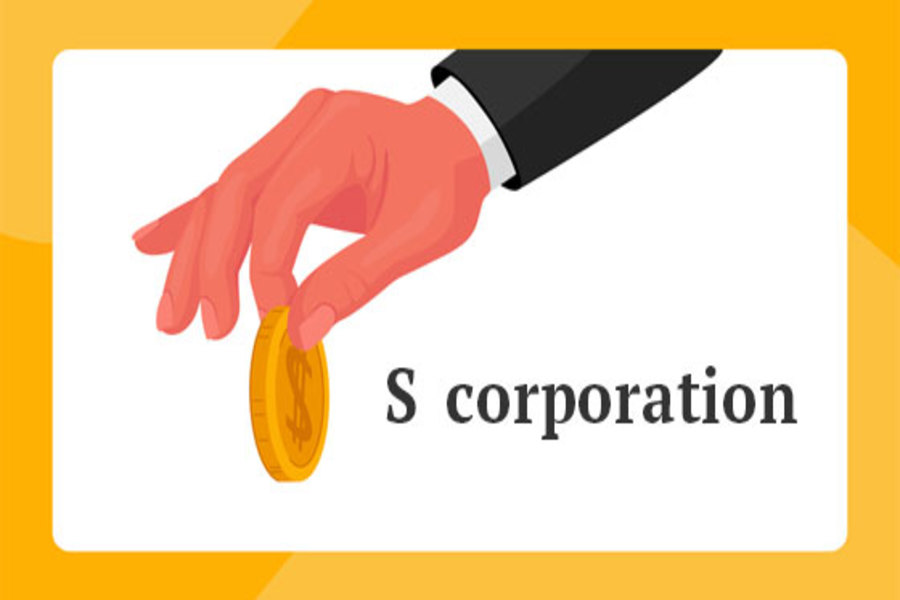If you own an unincorporated small business, you probably don’t like the size of your self-employment (SE) tax bills. No wonder! For 2023, the SE tax is imposed at the painfully high rate of 15.3% on the first $160,200 of net SE income. This includes 12.4% for Social Security tax and 2.9% for Medicare tax. The $160,200 Social Security tax ceiling is up from the $147,000 ceiling for 2022, and it’s only going to get worse in future years, thanks to inflation. Above the Social Security tax ceiling, the Medicare tax component of the SE tax continues at a 2.9% rate before increasing to 3.8% at higher levels of net SE income thanks to the 0.9% additional Medicare tax, on all income. The S corp advantage For wages...

If you’re starting a business with some partners and wondering what type of entity to form, an S corporation may be the most suitable form of business for your new venture. Here are some of the reasons why. A big benefit of an S corporation over a partnership is that as S corporation shareholders, you won’t be personally liable for corporate debts. In order to receive this protection, it’s important that: The corporation be adequately financed, The existence of the corporation as a separate entity be maintained, and Various formalities required by your state be observed (for example, filing articles of incorporation, adopting by-laws, electing a board of directors and holding organizational meetings). Dealing with losses If you expect that the business will incur losses in its early years,...
You may have wondered why, in a given year, you may be taxed on more S corporation income than was distributed to you from the S corporation in which you are a shareholder. The answers lies in the way S corporations and their shareholders are taxed. But before explaining those rules, be assured you that when you are taxed on undistributed income, you won't be taxed again if and when the income ultimately is paid to you. Unlike a regular or C corporation, an S corporation generally isn't subject to income tax (California does charge a 1.5% entity-level tax). Instead, each shareholder is taxed on the corporation's earnings, whether or not the earnings are distributed. Similarly, if an S corporation has a loss, the loss is passed...
If your business is organized as a sole proprietorship or as a wholly owned limited liability company (LLC), you’re subject to both income tax and self-employment tax. There may be a way to cut your tax bill by conducting business as an S corporation. Fundamentals of self-employment tax The self-employment tax is imposed on 92.35% of self-employment income at a 12.4% rate for Social Security up to a certain maximum ($142,800 for 2021) and at a 2.9% rate for Medicare. No maximum tax limit applies to the Medicare tax. An additional 0.9% Medicare tax is imposed on income exceeding $250,000 for married couples ($125,000 for married persons filing separately) and $200,000 in all other cases. What if you conduct your business as a partnership in which you’re a...
Are you thinking about launching a business with some partners and wondering what type of entity to form? An S corporation may be the most suitable form of business for your new venture. Here’s an explanation of the reasons why. The biggest advantage of an S corporation over a partnership is that as S corporation shareholders, you won’t be personally liable for corporate debts. In order to receive this protection, it’s important that the corporation be adequately financed, that the existence of the corporation as a separate entity be maintained and that various formalities required by your state be observed (for example, filing articles of incorporation, adopting by-laws, electing a board of directors and holding organizational meetings). Anticipating losses If you expect that the business will incur losses...
Do you conduct your business as a sole proprietorship or as a wholly owned limited liability company (LLC)? If so, you’re subject to both income tax and self-employment tax. There may be a way to reduce tax with an S corporation. Self-employment tax basics The self-employment tax is imposed on 92.35% of self-employment income at a 12.4% rate for Social Security up to a certain maximum ($137,700 for 2020) and at a 2.9% rate for Medicare. No maximum tax limit applies to the Medicare tax. An additional 0.9% Medicare tax is imposed on income exceeding $250,000 for married couples ($125,000 for married persons filing separately) and $200,000 in all other cases. Similarly, if you conduct your business as a partnership in which you’re a general partner, in addition...
Operating a business as an S corporation may provide many advantages, including limited liability for owners and no double taxation (at least at the federal level). Self-employed people may also be able to lower their exposure to Social Security and Medicare taxes if they structure their businesses as S corps for federal tax purposes. But not all businesses are eligible — and with changes under the Tax Cuts and Jobs Act (TCJA), S corps may not be as appealing as they once were. Should you elect S corporation status? Compare and contrast The main reason why businesses elect S corp status is to obtain the limited liability of a corporation and the ability to pass corporate income, losses, deductions and credits through to shareholders. In other words,...








